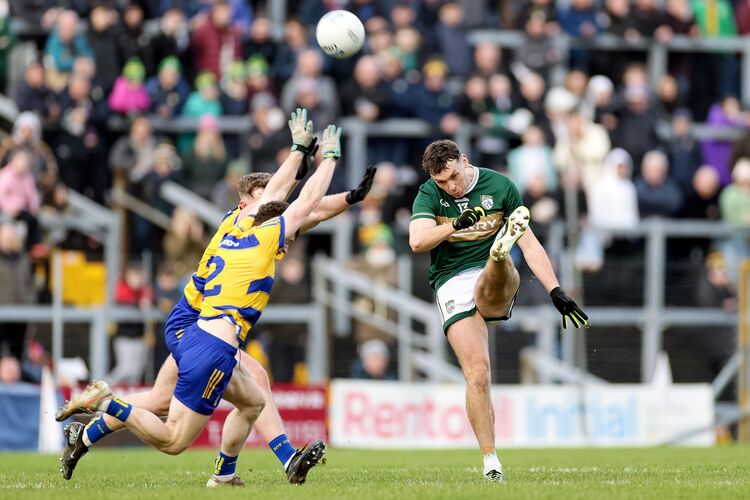Some members of the Kilfenora Céilí Band in the studio.
Music Notes / By Colleen Taylor
There’s no better gateway to nostalgia than a céilí band concert. When the jaunty fiddles and accordions chime together in conversation, when the sheer force of 12 or traditional musicians fills a room and feet immediately begin tapping, heads begin nodding, one could as easily be in a church hall in 1950 as at the National Concert Hall in 2019. I was in the latter time-space a few weeks ago for the Kilfenora Céilí Band’s Dublin concert marking their new album “Both Sides Now.” The show warmed me with memories, thinking of my grandparents, but it also had me wondering what parts of traditional Irish music culture we should take forward into 2019 and what parts we should leave in the past.
The Kilfenora Céilí Band formed in 1909 as a fundraiser for the renovation of a local church and became a proper touring céilí band in the 1930s and 40s. What I like best about the Kilfenora Céilí Band’s story is its “matriarchy,” as current band members remember it. Legendary KCB leader Kitty Linnane snuck out of a convent for her first appearance with the band in 1939 and then steered the band to several All-Ireland championships in the 1950s and ‘60s. Now Kilfenora features six female musicians but is lead by John Lynch, with flutist Garry Shannon as the band’s charismatic onstage persona for live performances.
The band gave their Dublin audience what they wanted: a trip down memory lane. Polkas, lively reels and jigs, such as “Green Groves of Erin” and “McFadden’s Handsome Daughter,” had the minds of audience members drifting out west and back in time to their youths. I could see it in the smiles on their faces, the nudging of the person next to them when a familiar tune began. The fans also delighted in some sentimental songs from vocalists Jerry Lynch and Edel Vaughan, including the Joni Mitchell tune “Both Sides Now.” With that Mitchell song, the nostalgia in the room reached even further west, to the American folk revival and the transatlantic mid-century cultural exchange in which many of the audience members clearly participated. For me, the band showed their true shining colors when they performed some original tunes composed by Tim Collins inspired by the Burren landscape.
But if the band’s rise to success can be credited to the matriarch Kitty Linnane, it does not actively practice that feminist background now. The structure of the concert was subtly, if unconsciously, masculinist. Both the female musicians and female dancers were positioned as if acting in the supporting role to male stars, when they clearly possessed equally exquisite talent—multi-instrumentalists, beautiful footwork. I was perturbed when the band introductions, characterized by clever adjectives inserted before each respective musician’s name, described all the women onstage in terms of Victorian ideals of femininity and all the men in terms of musical prowess. The female musicians were “angelic,” “sizzling,” “enchanting,” and perhaps most alarmingly of all, “virtuous.” The men, on the other hand, were “terrific,” “brilliant,” and “skilled.” As much as the world needs nostalgia and tradition, anything akin to 1950s social ideologies relegating women to ornamentation or as an assist to male success should remain in the past. If the band is going to continue the legacy Kitty Linnane, it must also practice and cultivate the feminist ethos her career represents.
The Kilfenora Céilí Band puts on a good show—no one can contest that. The band’s continued fan base, continued musical output, continued energy speaks to the endurance and vitality of traditional Irish culture. I hope the band will continue to sell out venues like the National Concert Hall in the years to come, and I hope the Kilfenora musicians will continue to work to make céilí music relevant in the 21st century, so that Irish music never forgets the past but also keeps pace with the contemporary moment.







